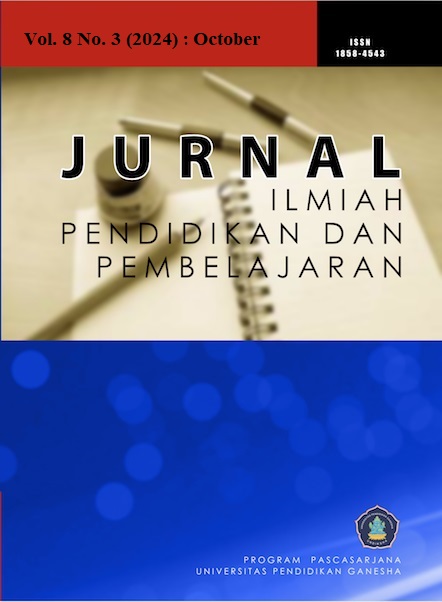Implementation of Project Based Learning Using Talempong Traditional Musical Instrument Playing to Develop Mutual Cooperation Values in Elementary Schools
Kata Kunci:
Project Based Learning, Talempong, Mutual Cooperation, Elementary SchoolAbstrak
The a need to find an effective method of instilling social values in elementary schools, especially amidst the tendency of individualism. This study aims to evaluate the effect of implementing project-based learning using Talempong games on developing cooperation values among elementary school students. The research method is a quasi-experiment with two groups: an experimental group that received project-based learning with Talempong and a control group that received conventional learning. The research sample consisted of 60 5th-grade students from two elementary schools. The instrument used was a validated questionnaire, and its reliability was measured. Data were analyzed using paired sample t-test and independent sample t-test. The results showed a significant increase in the cooperation value of students in the experimental group, from an average of 3.2 to 4.5, compared to the control group, which only increased from 3.1 to 3.3. This study concludes that implementing project-based learning with Talempong games effectively develops students' cooperation values, and it is recommended to be applied more widely in elementary schools. This research implies that project-based learning with Talempong games can develop students' cooperation values.
Diterbitkan
Cara Mengutip
Terbitan
Bagian
Lisensi
Hak Cipta (c) 2024 zikri, Ardipal, Ayu

Artikel ini berlisensiCreative Commons Attribution-ShareAlike 4.0 International License.
Authors who publish with the Jurnal Ilmiah Pendidikan dan Pembelajaran (JIPP) agree to the following terms:
- Authors retain copyright and grant the journal the right of first publication with the work simultaneously licensed under a Creative Commons Attribution License (CC BY-SA 4.0) that allows others to share the work with an acknowledgment of the work's authorship and initial publication in this journal.
- Authors are able to enter into separate, additional contractual arrangements for the non-exclusive distribution of the journal's published version of the work (e.g., post it to an institutional repository or publish it in a book), with an acknowledgment of its initial publication in this journal.
- Authors are permitted and encouraged to post their work online (e.g., in institutional repositories or on their website) prior to and during the submission process, as it can lead to productive exchanges, as well as earlier and greater citation of published work. (See The Effect of Open Access)










